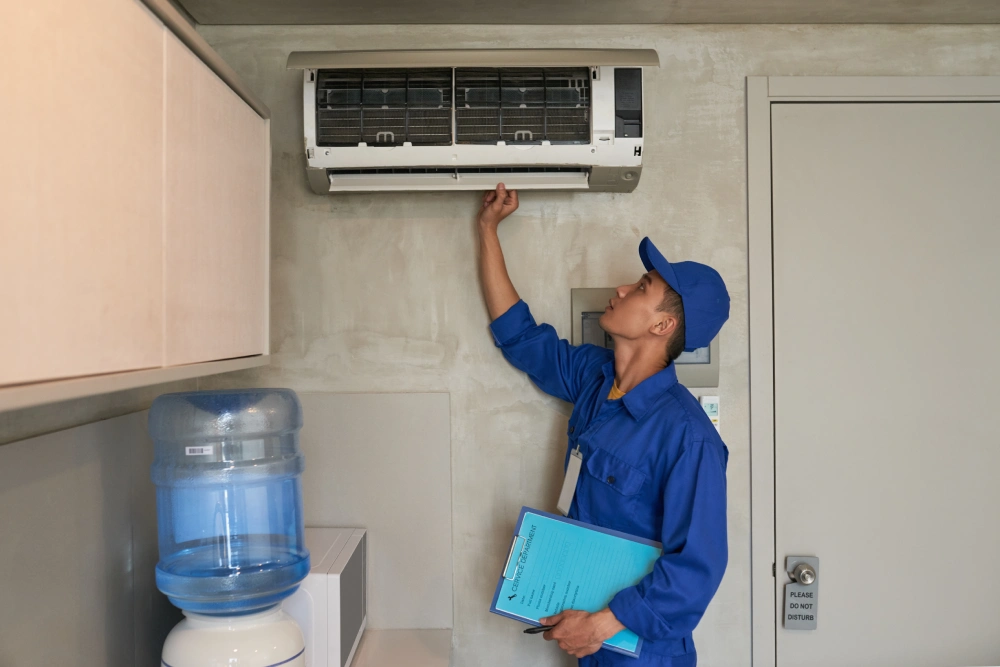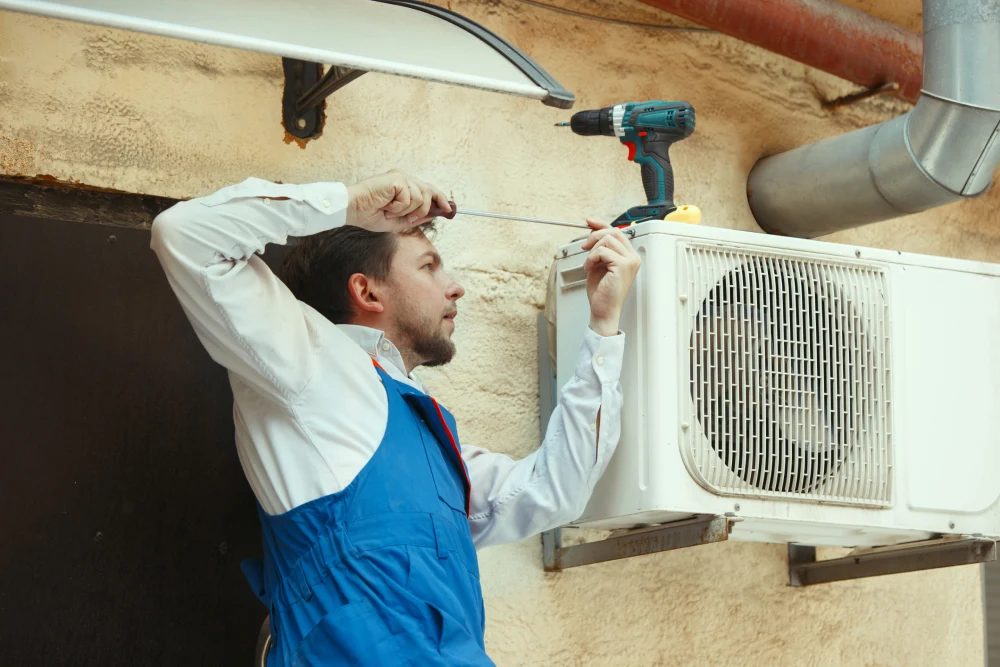Do you know what causes refrigerant leaks? Perhaps the most crucial component of your air conditioner is the refrigerant, sometimes referred to as coolant or Freon. AC refrigerant draws heat from the air inside a property, releases it outside, and produces cool air. However, when your AC system does not cool or ceases to function properly when you turn it on, there might be a problem with your AC refrigerant. When this happens, you should know how to inspect your AC system.
Common Causes of AC Refrigerant Leaks
Regular AC maintenance, including inspections for signs of leaks and prompt repair of any identified issues, can help prevent refrigerant leaks and prolong the lifespan of the AC system. Additionally, ensuring that qualified HVAC professionals handle installation, maintenance, and repairs can minimize the risk of leaks due to improper practices. Refrigerant leaks in air conditioning (AC) systems can be caused by various factors.
- Corrosion — Over time, metal components within the AC system can corrode due to exposure to moisture, chemicals, or other environmental factors. Corrosion weakens the integrity of the system, leading to leaks in the refrigerant lines or connections.
- Physical Damage — Physical damage to the AC system, such as dents, punctures, or bends in the refrigerant lines, can cause leaks. This damage can occur due to accidents, improper handling during installation or maintenance, or external forces such as falling objects.
- Vibration — Vibrations from the AC unit’s operation or nearby machinery can gradually loosen fittings, connections, or joints in the refrigerant lines, leading to leaks over time. This is particularly common in older systems or those that have not been properly maintained.
- Faulty Components — Defective or worn-out components within the AC system, such as valves, seals, or gaskets, can develop leaks. These leaks may occur at various points in the refrigerant circuit, including the compressor, evaporator coil, or condenser coil.
- Improper Installation or Repair — Incorrect installation practices or improper repair techniques can result in refrigerant leaks. For example, if the refrigerant lines are not adequately sealed during installation or if repairs are made using substandard materials or techniques, leaks may develop sooner or later.
How to Prevent AC Refrigerant Leaks
Whether you have a window-type or ductless AC unit, refrigerant is commonly used in air conditioners. Preventing AC refrigerant leaks involves a combination of proper installation, regular maintenance, and timely repairs. Here are some key steps to prevent refrigerant leaks in AC systems:
Professional Installation
Ensure that your AC system is installed by qualified HVAC professionals who follow manufacturer guidelines and industry best practices. Proper installation includes correctly sizing the system, securing refrigerant lines, and sealing connections to prevent leaks from occurring in the first place.
Regular Maintenance
Schedule routine maintenance for your AC system at least once a year, preferably before the start of the cooling season. During maintenance visits, HVAC technicians can inspect the system for signs of wear, corrosion, or damage that could lead to leaks. They can also check refrigerant levels and identify any potential issues early on.
Check for Signs of Leakage
Keep an eye out for any signs of refrigerant leakage, such as reduced cooling efficiency, ice buildup on the evaporator coil, hissing sounds near refrigerant lines, or oil stains around components. If you notice any of these signs, contact a professional HVAC technician to inspect and repair the system promptly.
Seal Ductwork
Ensure that the ductwork connected to your AC system is properly sealed to prevent air leaks. Leaky ducts can cause pressure imbalances and contribute to refrigerant leaks by putting extra strain on the system.
Protect Against Physical Damage
Take precautions to protect the AC system from physical damage, such as installing protective barriers around outdoor units and keeping the area clear of debris that could potentially cause harm. Additionally, be cautious when performing any activities near the AC system to avoid accidentally damaging refrigerant lines or components.
Use High-Quality Components
When replacing parts or components of the AC system, use high-quality materials and components recommended by the manufacturer. This includes seals, gaskets, valves, and refrigerant lines. Investing in quality parts can help prevent premature failure and leakage.

Frequently Asked Questions
How often does refrigerant need to be refilled or replaced in an AC system?
Under normal circumstances, refrigerant should not need to be refilled or replaced in an AC system. If the system is losing refrigerant, it likely indicates a leak that needs to be repaired. Routine maintenance should include checking refrigerant levels and addressing any leaks promptly.
What are the signs of a refrigerant leak in an AC system?
Signs of a refrigerant leak include reduced cooling performance, warm air blowing from the vents, ice buildup on the evaporator coil, hissing sounds near refrigerant lines, or oil stains around components. If you notice any of these signs, it’s important to have the system inspected by a professional.
Can I add refrigerant to my AC system myself?
Adding refrigerant to an AC system is not a DIY task and should only be performed by licensed HVAC professionals. Simply adding refrigerant without addressing the underlying cause of the leak can lead to further damage and inefficiency in the system.
What type of refrigerant does my AC system use?
The type of refrigerant used in an AC system depends on its age and design. Common refrigerants used in residential AC systems include R-22 (Freon), which is being phased out due to environmental concerns, and R-410A, which is more environmentally friendly. It’s essential to know the type of refrigerant your system uses for maintenance and repairs.
Conclusion
Refrigerant leaks are serious AC problems. They may be hazardous and cause severe health issues, as well as high energy costs. If your AC unit is leaking, it’s important to check and repair it immediately. Our expert technicians are dedicated to giving you the best possible home comfort and cost savings. We offer various HVAC services, such as AC installation, repair, and maintenance, as well as attic insulation, ductwork, and more. Contact us today.




